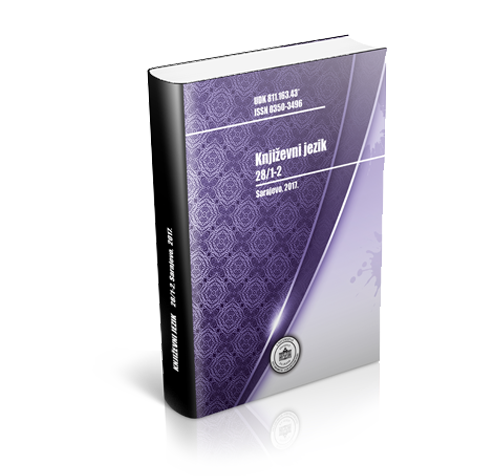O imperativu u savremenom srpskohrvatskom jeziku
On the Imperative in Contemporary Serbo-Croat
Author(s): Sreto TanasićSubject(s): Theoretical Linguistics, South Slavic Languages
Published by: Institut za jezik
Keywords: contemporary Serbo-Croatian language; imperative; verb; positive and negative imperative; periphrastic imperative;
Summary/Abstract: The central purpose of this article is to present some characteristic uses of the 'imperative in contemporary Serbo-Croat taken from a wide range of literary texts. It is- a characteristic of some verbs in Serbo-Croat that they don’t permit the imperative construction and although this feature has not been studied so far per se, it is clear that it can be attributed to the lexico-semantic idiosyncrasies of these verbs. The results of the investigation presented in this article show that the positive farm of the imperative is more frequent in the analyzed texts than the negative imperative. This can be accounted for by the fact that the meaning underlying the negative imperative can also be realized either by the positive form of the imperative or by the constructions containing the present tonse of such verbs as: may, can, must. As for the relationship between the occurrences of the simple negative imperative and the periphrastic imperative, it has to be pointed out that in contemporary Serbo-Croat there is a tendency for the periphrastic form to be used for expressing less strong prohibitions than the simple negative imperative. In most of the analyzed tests it has been found that the periphrastic construction contains either the infinitive or the present tense of the verb following the conjunction da after nemoj.
Journal: Književni jezik
- Issue Year: 13/1984
- Issue No: 1
- Page Range: 15-26
- Page Count: 12
- Language: Croatian, Serbian

